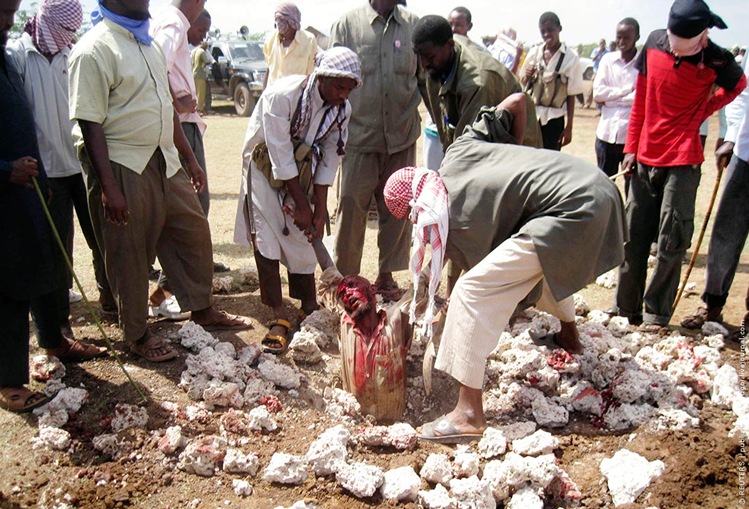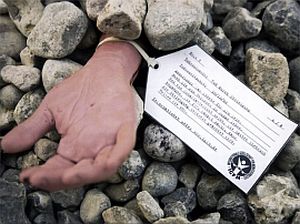Independent
December 14, 2013

Two months ago, a young mother of two was stoned to death by her relatives on the order of a tribal court in Pakistan. Her crime: possession of a mobile phone.
Arifa Bibi’s uncle, cousins and others hurled stones and bricks at her until she died, according to media reports. She was buried in a desert far from her village. It’s unlikely anyone was arrested. Her case is not unique. Stoning is legal or practised in at least 15 countries or regions. And campaigners fear this barbaric form of execution may be on the rise, particularly in Pakistan, Afghanistan and Iraq.
Women’s rights activists have launched an international campaign for a ban on stoning, which is mostly inflicted on women accused of adultery. They are using Twitter and other social media to put pressure on the United Nations Secretary General, Ban Ki-moon, to denounce the practice.
“Stoning is a cruel and hideous punishment. It is a form of torturing someone to death,” said Naureen Shameem of the international rights group Women Living Under Muslim Laws. “It is one of the most brutal forms of violence perpetrated against women in order to control and punish their sexuality and basic freedoms.”
She said activists will also push the UN to adopt a resolution on stoning similar to the one passed last year on eradicating female genital mutilation – another form of violence against women often justified on religious and cultural grounds.
Stoning is not legal in most Muslim countries and there is no mention of it in the Koran. But supporters argue that it is legitimised by the Hadith – the acts and sayings of the Prophet Mohamed. Stoning is set out as a specific punishment for adultery under several interpretations of sharia or Islamic law. In some instances, even a woman saying she has been raped can be considered an admission to the crime of zina (sex outside marriage).
In one case cited by Shameem, a 13-year-old Somali girl, Aisha Ibrahim Duhulow, was buried up to her neck and stoned by 50 men in front of 1,000 people at a stadium in Kismayu in 2008. Her father told Amnesty International she had been raped by three men but was accused of adultery when she tried to report the rape to the al-Shabaab militia in control of the city.
Extrajudicial terror
Iran has the world’s highest rate of execution by stoning. No one knows how many people have been stoned but at least 11 people are in prison under sentence of stoning, according to an Iranian human rights lawyer, Shadi Sadr.
Sadr, who has represented five people sentenced to stoning, said Iran carried out stonings in secret in prisons, in the desert or very early in the morning in cemeteries. “Pressure from outside Iran always helps. The Islamic Republic pretends that they don’t care about their reputation, but they do care a lot,” added Sadr, who lives in exile in Britain.
In 2010, the case of Sakineh Mohammadi Ashtiani, a woman sentenced to death by stoning for alleged adultery, caused international outcry. The authorities have suspended her sentence but she remains in prison. Officials withdrew stoning from a new draft penal code last year, but have since reinserted it.
Stoning is also a legal punishment for adultery in Mauritania, a third of Nigeria’s 36 states, Pakistan, Qatar, Saudi Arabia, Somalia, Sudan, the United Arab Emirates and Yemen.
In some countries, such as Mauritania and Qatar, stoning has never been used although it remains legal. However, in other countries, such as Afghanistan and Iraq, stoning is not legal but tribal leaders, militants and others carry it out extrajudicially. “In Afghanistan, warlords are manipulating religion to terrorise the population for their own political ends. Stoning is one way of doing that,” said Shameem, a human rights lawyer who is co-ordinating the Stop Stoning Women campaign.
